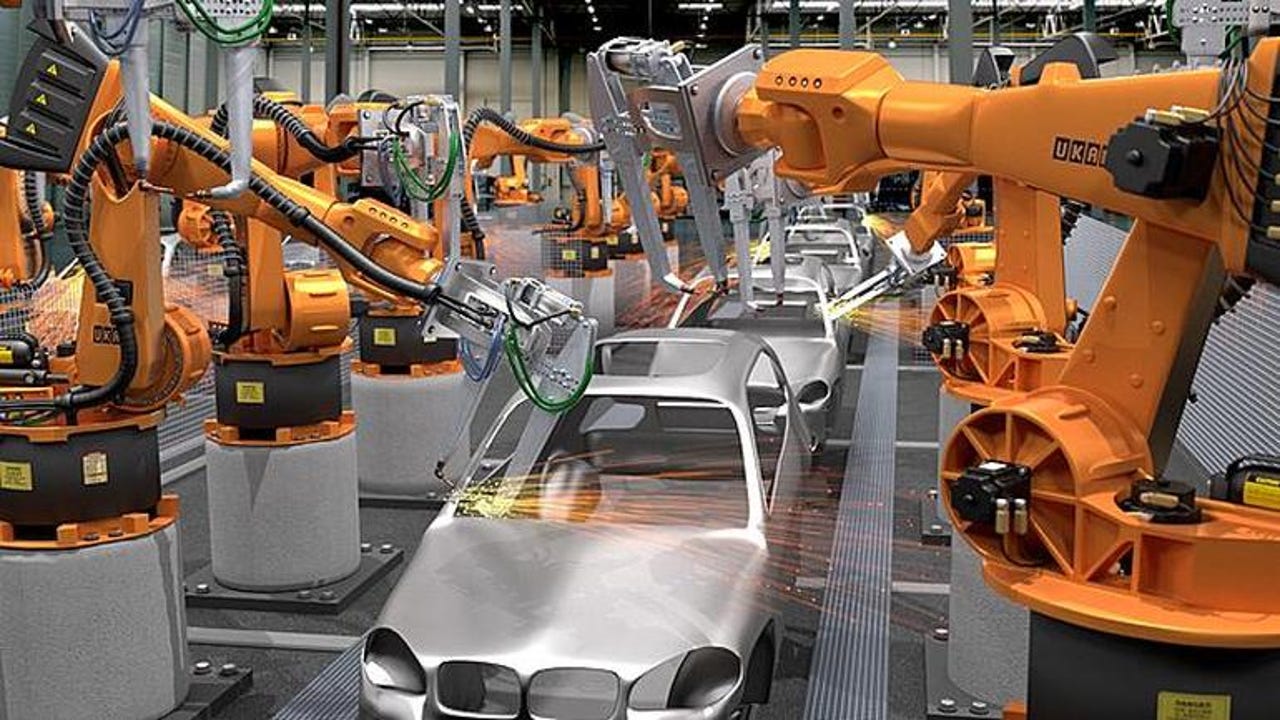Industrial robots are good for the economy, study suggests


In many automotive plants, robots have taken over the heavy lifting and repetitive tasks.
Investment in robotics has a greater positive impact on the economy than information technology, construction or real estate, according to a new report from the Centre of Economic Business Research (CEBR). This is quite contrary to the widespread notion that robots will steal jobs from humans. While they certainly displace jobs, industrial robots can also give companies new growth opportunities. The new report finds that the US is currently leading the way with an estimated robotics stock of $732 billion.
The study focuses on the impact of robotics automation on economic development from 1993 to 2015. It includes 23 countries that are part of the OECD (Organisation for Economic Co-operation and Development), a group of countries with highly developed economies and democratic governments. The report was sponsored by Redwood Software, a company that makes robotic process automation software to handle tasks that were previously performed by humans, so they would want to make robotics look like a good investment. However, the research was conducted by an independent firm using data sources that are publicly available from the OECD and the International Federation of Robotics (IFR).
We discussed the study with CEBR economist David Whitaker and Neil Kinson, chief of staff at Redwood. "Industrial robots and their installation can be associated with around 10 percent of economic growth in OECD countries over the last 15 to 20 years," Whitaker said. "And that is expected to be a conservative estimate."
The study found that higher numbers of robots were associated with higher labor productivity and increased economic development. Whitaker suggests that when industrial robots take over the more mundane aspects of producing goods and services, then there is more room for the creative skills that only human workers can offer.
In many automotive plants, for example, robots have taken over the heavy lifting and repetitive tasks. As part of an unrelated project, Kinson recently visited Land Rover's Special Vehicle Operations plant in Coventry, UK. At the facility for bespoke luxury vehicles, industrial robots do the manufacturing, while hundreds of skilled artisans do custom trim work, such as hand-crafting leather and two-tone paint jobs. This division of labor makes sense and is much less scary than the futuristic nightmare of robots stealing all the jobs.
Whitaker said: "Robots are about productivity, they don't do creativity very well, and they don't do things that involve failure, which is at the core of any design process."
Japan was once the leader in robotics, but the US has since taken over that title. While the US has been adding more robots each year, Japan's stock of robots has shrunken by more than 20 percent since 1993. Meanwhile, the US spent $86 billion on industrial robots in 2015, which was more than 15 times higher than the OECD average.
Kinson explained, "We know from looking at the data from IFR, that a key driver of growth in automation in the United States has been down to the automotive industry. It was the biggest consumer of new industrial robots between 2010 and 2015, with an annual average growth rate of around 10 percent."
Despite recent growth, robotics is still a relatively small portion of the economy in the US or any other country. Kinson bets the upward trend will continue. He said, "The buildup in the contribution that robotics has made to growth is likely to be understated and if anything, we expect that to grow in the coming years."
Overall, the study showed that investment in robotics offers better long-run bang for your buck than traditional sectors. Whitaker is optimistic about what the rise of the robots will do for global economies.
He said, "The story here is not about the demise of work as we know it, the story here is: how do we invest to become the leaders of a business in an economic climate that we just simply can't predict in this age. It's about equipping and engaging ourselves with the right skills and it's about driving the way that we educate the workforce to deliver against the jobs that will be created as a result of this robotic revolution."
VIDEO: No, robots won't take your job -- just part of it